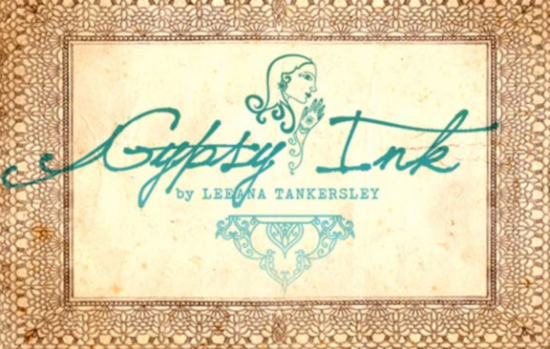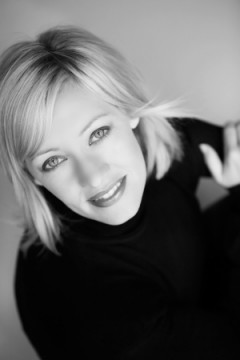Leeana Tankersley Talks Women
It’s funny the things you remember about people.
The day I met Leeana Tankersley, we had to jump her rental car.
(What company is renting women rental cars with dead batteries??!)
It’s an arbitrary memory, but there in my mind is an image of Leeana waving Jason Boyett, Rachel Held Evans and I over to her stalled out vehicle. But a situation that would’ve turned some people into awkward, frazzled messes only seemed to better highlight Leeana’s wit and seemingly don’t-even-have-to-try coolness. She appeared admirably un-flusterable.
Since then, we’ve interacted a few times and I get the impression that no matter how great she comes across, Leeana isn’t trying to present herself as the perfect specimen of a woman. In fact, in agreeing to do this interview, she stressed “I’m a firm believer that so many of our issues with other women are, ultimately, rooted in our issues with ourselves.”
Hard not to love that kind of honesty, huh? And that’s what I mean about how it’s hard not to love Leeana Tankersley too.
Sarah: Do you ever find jealousy or competitiveness sneaking into your life? How do you work against these kind of competitive thoughts?
Leeana: I went through a terrible jag of professional jealousy that was directed at one person in particular and lasted for a long time. Too long really. I found myself nitpicking her work, bothered by her success, downright annoyed by her talent and cleverness.
All this was doing was turning me into an ugly person. Ultimately it was short-circuiting my own personal creativity and productivity as I simultaneously tried to poke holes in her work and emulate it. Secretly, I thought she was great, and I was so terribly agitated by how un-great I felt.
Down deep, I think I was really in pain. I was struggling with the fact that this woman had found her professional and vocationally identity, and I was really still trying to find mine. She appeared established, and I felt like I was still trying to convince everyone (read: convince myself) that I had anything of worth to offer. My own personal pain and struggle got taken out on her. Never publicly, but certainly in my heart. As if her success somehow took something away from me.
This is a problem for us as women . . . we believe that another woman’s beauty, home, relationship, success, creativity, shoe collection, body, etc., somehow depletes the cosmic resources and we are then left with less because they have experienced more. It’s deficit thinking. And it kills.
I’m trying to believe that beauty, creativity, love, compassion, and healing are the kinds of things that exist in abundance. We can all receive and give these never-ending resources.
I’ve also tried to refocus. Instead of spending so much time and energy worrying about that other woman, I’ve tried to spend that time and energy on myself—getting to the bottom of what’s really bothering me. Dealing with my own pain, disappointment, regret . . . and also giving myself permission to be on a different journey of professional and vocational development.
Sarah: You just helped every woman in the world relate to you with that answer. :) It sounds like you’ve thought about this issue a lot. Who or what has influenced your thinking on women over the years?
Leeana: Anne Lamott once said something about the terrible trap of our continuous and simultaneous self-aggrandizing and self-loathing. This is totally me. In one moment I believe myself to be capable of perfection and in the very next moment capable only of failure.
For me, so many of my issues with other women are typically, ultimately, rooted in my issues with myself.
Somehow, I convince myself into believing I can be better than everyone else and that—in the very same breath—I am ultimately far worse than everyone else. Neither of which is true. Both of these reactions, for me, are based in shame . . . something I struggle with almost every day. If I can’t be more, better, perfect, then I am a certain failure.
Automatically, if I am feeling this way about myself, other women become a personal threat instead of an ally.
I guess I’m beginning to realize that every time I try to be more than human, the more I feel less than human. Then, in order to cover up that insecurity, I reach for false selves and contrived masks to manage my image to others (think about Adam and Eve in the Garden).
I’ve found that when I live like this, I’m unable to get close to anyone because I’m just a collection of smoke and mirrors. This just makes the self-loathing stronger . . . you see how exhausting this cycle can become.
What I’m trying to do right now in my life is wake up every morning and say the following mantra to myself: “I am no more than human, and I am no less than human. I am just a human.”
Sounds weird, maybe, but this mantra is helping me accept my limits as a human being. Somehow in the midst of all that accepting and embracing of myself, I am better able to accept and embrace other women and the longing I have for deep and true intimacy in my relationships.
I have also found that when I honestly talk about my struggles with shame, I am doing the brave work of reaching out. I truly believe that when we reach out to the safe women in our lives, we create a little space in the universe through which they are able to reach back in to us. It’s amazing how healing this can be—to be accepted and loved right in the midst of our imperfections.
If you enjoyed this interview, you may want to check out this one with New York Times Best Selling Author Ann Voskamp, this one with Jena Nardella of Bloodwater Mission or this one with Heather Whittaker of Whittaker Woman.




Ashley Smith May 10, 2011 (8:21 am)
LOVE THIS! “I have also found that when I honestly talk about my struggles with shame, I am doing the brave work of reaching out. I truly believe that when we reach out to the safe women in our lives, we create a little space in the universe through which they are able to reach back in to us. It’s amazing how healing this can be—to be accepted and loved right in the midst of our imperfections.”
Sarah May 10, 2011 (2:23 pm)
You are so right, Ashley. Choosing to be the one who lays out vulnerability often has the surprise effect of disarming those around us. Good word, girl. :)
Maria Keckler May 13, 2011 (8:19 pm)
Sarah, you are so right that Leeana just helped every woman relate to her. Her candor always disarms and gives permission to take down the mask. What a gift that is indeed.
Thanks for gifting us with Leeana’s heart here.
Sarah May 17, 2011 (2:05 pm)
@Maria, thanks! I’m glad you see the value of tearing down some walls in this area. Cheers to healthier relationships!
Leeana Tankersley May 17, 2011 (3:06 pm)
I so appreciate Sarah’s vision to create dialogue around the struggles we often feel in our relationships with other women. Thank you, Sarah, for the opportunity to participate in such an important conversation. You are a gem!!!